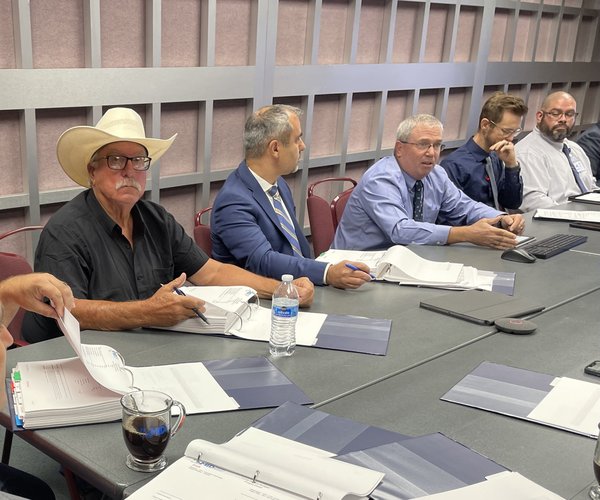While bright, loud fireworks may have caught a few community members by surprise throughout the week, so did a handful of new state laws.
On Monday, new laws went into effect throughout California. There is now a new tax on guns and ammunition, a ban on hidden fees at restaurants and stores, an initiative to have electronics fixed more conveniently, a requirement for bars and clubs to have drug test kits on hand, a stop to disciplining students for certain behavioral issues, a cap on security deposits for renters, changes to enforcement of vehicle registration tags and a requirement for employers to develop workplace violence prevention plans.
SB 478: Goodbye to hidden fees
Hidden fees are a thing of the past in California thanks to Senate Bill 478. The law prohibits the practice of promoting prices that are lower than what customers end up paying on final tabs. With the law, customers will know exactly how much they will pay for items on the final receipt by accounting for additional tips for party sizes, city health mandate fees and corkage fees.
However, the new law does not apply to hidden surcharge fees because of an additional new bill recently signed into law last weekend. SB 1524 will make restaurants clearly and conspicuously display those fees on menus.
AB 28: More taxes on guns and ammunition
There will be a new tax up to 11% on manufacturers, vendors and dealers of firearms and ammunition as part of Assembly Bill 28.
The bill is better known as the Gun Violence Prevention and School Safety Act, with the money going towards the Board of State and Community Corrections to fund violence prevention efforts, which include “gun violence education, research, response and investigation programs. Furthermore, those funds may also go to the California Department of Education to address school safety such as security improvements on campuses.
SB 274: No more suspensions for the willfully defiant
Teachers, aides, paraprofessionals and administrators, buckle up.
Senate Bill 274 is putting a stop to suspensions for high school students who talk back to teachers, refuse to turn off cell phones, that are in violation of dress codes, who are tardy and are subject to other behavioral issues that the state considers “low-level,” or willful defiance.
The law serves as an expansion of California’s existing ban on willful defiance suspensions at the junior high level. SB 274 will be in effect through 2029.
AB 1013: Combatting date-rape drugs
Bars and nightclubs that serve alcohol across California must now display signage offering free or low-cost drug testing kits thanks to Assembly Bill 1013.
The kits must be capable of detecting controlled substances in drinks. If bars and nightclubs are not offering kits for free, the charge must be for a “reasonable amount based on the wholesale cost,” the law states.
The purpose of the law is to protect club-goers and bar customers from being unknowingly drugged through spiked drinks, which often leads to sexual violence.
Signage is required to be placed in highly visible location. Locations subject to the law are those authorized to sell beer, wine and distilled spirits.
SB 244: A right to repair your tech
Electronic and appliance manufacturers are now required to supply parts and other resources to product owners and independent repair shops through Senate Bill 244.
Better known as the Right to Repair Act, it applies to a number of products like computers, laptops, tablets, phones and most home appliances, while limiting repairs on video game consoles and alarm systems.
Products that cost between $50 to $99.99 will be covered under the law for at least three years after they were last manufactured. Items upwards of $100 will have coverage for at least seven years.
The law does not apply to equipment used in the agricultural, forestry, industrial and construction sectors.
AB 12: Slowing down security deposits
Security deposits that are worth more than one month’s more than rent can no longer be requested from landlords under Assembly Bill 12. It is a measure aimed at easing the burden of renters from throughout the state.
Under the new law, property owners are prohibited from charging renters two to three times the amount of a monthly security deposit, which had become more common as landlords tried to cover potential damages, cleaning costs or other failures to uphold lease agreements.
The law does not impact existing lease agreements. Instead, it only applies to agreements signed on or after July 1.
AB 256: No traffic stops for expired tags
Expired vehicle registration tags can no longer be the sole reason for a police officer initiating a traffic stop. Officers can make this type of traffic stop if the tags are two months or more expired. The law is in effect until Jan. 1, 2030.
SB 553: Preventing and addressing workplace violence
As a way to combat workplace violence, Senate Bill 553 is requiring California businesses with 10 or more employees to take a number of measures. The new law states that businesses must conduct worksite inspections, create a workplace violence plan, and provide specific training and information to each employee in order to improve safety in workplaces.
Verbal and physical abuse is considered workplace violence and can affect and involve employees, clients, customers and visitors.





